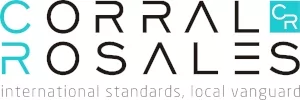- More than 3500 counterfeit items seized from three stores.
- Prison sentences of 15 months for the infringers.
- Ruling creates a legal precedent for future cases involving the sale of counterfeit goods that deceive the consumer.
After an operation carried out on the 20th March 2018 at "La Bahía", the largest informal market in Ecuador located in Guayaquil, the Attorney General ordered the arrest of the owners of stores from which counterfeit goods of various brands were seized.
The type of criminal action to be brought was determined prior to the operation being carried out, in an attempt to ensure that the raids would indeed lead to criminal penalties for the infringers. Following this, lawyers from our firm working alongside the Judicial Police and the Attorney General raided three stores, seizing 3,636 items. The seized goods included make-up, perfume, clothing, purses and handbags, and all types of accessories. The goods bore the trademarks of 20 well-known brands in total, all who then appeared in the proceedings as victims of the mentioned offences.
In the preliminary hearing as to the charges to be brought, the Attorney General assisted by CorralRosales, put forward the charges of handling stolen property and consumer deception in relation to the identity or quality of goods and services, same which were accepted by the Judge.
In the main hearing, the Attorney General acting for the public and CorralRosales acting for the owners of the marks as victims, successfully demonstrated to the Judge the material nature of the infringement, that the defendants' conduct amounted to the offence of consumer deception with respect to the quality of goods or services, and that the defendants were the perpetrators of the mentioned offences.
In sentencing, the Judge ordered the offenders to serve 15 months in prison, the destruction of the seized merchandise, and a fine of 3 basic salaries for each offender.
This has been an operation of significant importance and will set the standard moving forward in relation to intellectual property criminal proceedings, since not only was this the first time that a custodial sentence was handed down for this type of offence (within 30 days), but it also sets an extremely important legal precedent, in that selling counterfeit goods was held to constitute consumer deception and that the owners of the marks were deemed to be the victims.
It is important to mention that the threshold for trademark infringement being considered a criminal matter is US$50,000, which makes such actions difficult in practice, whereas the offence of consumer deception has no such threshold.
The content of this article is intended to provide a general guide to the subject matter. Specialist advice should be sought about your specific circumstances.


